Katherine Grainger goes from 'dark days' to GB's most decorated female Olympian
- Published
For a woman with a doctorate in homicide sentencing, Katherine Grainger's route to a fifth Olympic medal has comprised enough plot twists, acrimony and despair to make a decent crime thriller.
The 40-year-old Scot, alongside double sculls partner Vicky Thornley, now has a fourth silver to add to the gold she won in London 2012, making her Great Britain's most decorated female Olympian.
Yet she admits that "over the last year we have been through the mill a few times".
Having finally won gold in London at her fourth attempt, Grainger took two years away from the sport to study for her Phd, but then decided that the temptation of Rio was too strong.
Add in falling out with 28-year-old Thornley, which led to the disbanding of their boat; accusations their coach Paul Thompson was a "bully"; plus a failed quest to make the women's eight crew, and it sounded like a tale which would end bitterly.
But Grainger has once again shown her resilience and can now walk away from the sport safe in the knowledge that her comeback was justified after a result which very few saw coming.
'A fractious season'
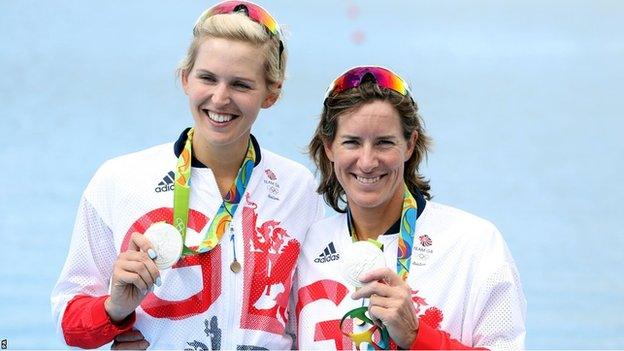
Grainger is now Britain's most decorated female Olympian
Former double Olympic champion James Cracknell describes the build-up for Grainger and Thornley as "fractious", to the extent that 84 days before the start of the Olympics everyone concerned gave up.
After failing to make the podium at the European Championships in May, stories emerged that the pair were not getting on.
Thornley's boyfriend Rick Egington - who won Olympic silver in 2008 and bronze at London 2012 - accused their coach Thompson of "mismanaging the boat" and the Australian wasn't helped by bullying accusations, admitting while in Rio that he's "not the sweetest drink in the cabinet".
The whole situation was a mess so British Rowing decided to cut their losses by dissolving the partnership. At that point, Grainger's Olympic dream seemed doomed.
Sir Steve Redgrave was among those to suggest that they would be better off trying to make the women's eight go faster, but that failed too.
Having taken part in a race-off on the same week that the GB rowing team was announced, they could not beat the times of the existing crew and their names were omitted from the list of those heading to Rio.
Grainger admitted it was her lowest point. "Two months from Olympics, that's certainly not where you want to be," she said. "It was hard to see how to get through it."
The turning point
Rio Olympics 2016: Katherine Grainger & Vicky Thornley's postcard
With only one option left and 60 days until Rio, Grainger and Thornley decided to bury their differences and reform the boat.
"When the press are doubting you, British Rowing are doubting you and when you doubt yourself, that's when you find resilience," said Cracknell, who won golds in the men's four in 2000 and 2004.
"I'm sure they will say there were times where they didn't row for each other, but with 60 days to go, it doesn't matter if they never talk to each other again, just do it for the short term."
After her triumph at Lagoa, Grainger admitted: "It simplified everything. It was the two of us and our coach on a mission to get to the Olympics. And I'm really proud of what we achieved in a short space of time."
The comeback and the glory
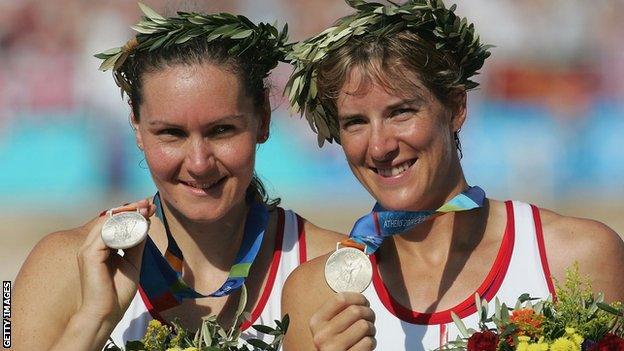
Katherine Grainger and team-mate Cath Bishop won silver at the 2004 Athens Games
The early signs were promising, according to Cracknell, who said a fifth place in the World Cup in June was "not bad" given they had raced so little together. But as the Olympics neared, 2004 bronze medallist Sarah Winckless says she could tell that they were on an upward curve and predicted a podium finish.
The first sign that it was possible came in the semi-final in Rio, where seemingly from nowhere Grainger and Thornley were fourth fastest overall, albeit by 0.01 seconds.
"The battle for Katherine and Vicky coming into the regatta was to make the final," Cracknell said. "After the heats, you would have said the same thing, but after the semis everything changed. I thought 'we could be on for a medal here'."
As it turned out, he was right. Cracknell says Grainger's experience played its part in rowing a textbook race. Despite being caught with 200m remaining by the Polish crew, Cracknell insists "they didn't lose gold, they won a silver medal".
He added: "The Olympics is all about performing on that one day in four years and it doesn't matter what you do in the 1,460 days before then. Katharine has shown she has Olympic medal form, and they had their two best races of the year in the Olympics.
"That is down to experience, self-belief and trusting each other."
Where does this rank in Grainger's career?
After finally achieving gold in London 2012 after three previous attempts, it is perhaps easy to dismiss the Scot's achievement four years later.
But given the toil she has been through, the risks she has taken and the trauma she has put her family through again, Grainger rates this more highly.
"I don't think anything could eclipse London because of everything that surrounded it," she said.
"But I remember at the start of this campaign feeling that if I could come out with anything, a medal of any kind, it would probably be my greatest achievement.
"There were many, many dark days if I am honest where I couldn't see this happening so to be standing here, finally, in the Rio sunshine with a big medal around our necks, has made it all worthwhile."
What is Grainger's legacy?
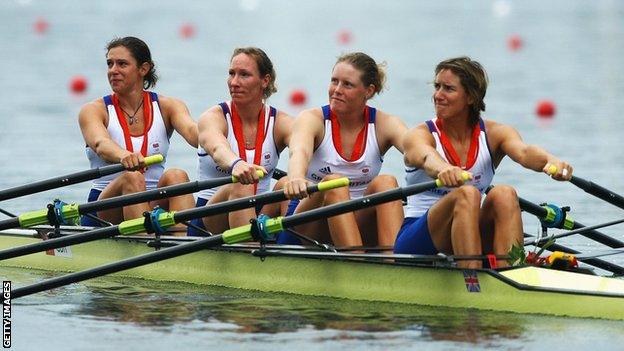
Katherine Grainger was part of GB's women's quadruple sculls team at the Beijing Olympics in 2008
Comparing where Grainger now sits in the pantheon of British Olympic greats seems a fruitless task.
Cracknell, 44, would rather concentrate on the way she has achieved her milestone.
"Katherine proved the hunger was there," he said. "I thought she left herself too much to find the top level again, but she has proved me and everyone wrong and I'm so pleased for her.
"She was part of the first female crew to get a rowing medal in Sydney, and she backed that up in Athens, Beijing and London, so this was looking like it might be the first Olympics where that might not happen.
"Very few people who come to an Olympic Games walk away with a medal, but she's been at five and won a medal every time. The fact she has done it at 40... I would like to think that I could have done that, but I haven't and neither has Steve Redgrave."
According to her friend Winckless, performing in Rio was Grainger's "calling".
"It was brave to take on a new project after London and it would have been easier for a lesser person to say they were closing the account there.
"But this is a beautiful lake here, it was calling to Katherine and she has proved everyone who believed in her right."
- Published11 August 2016
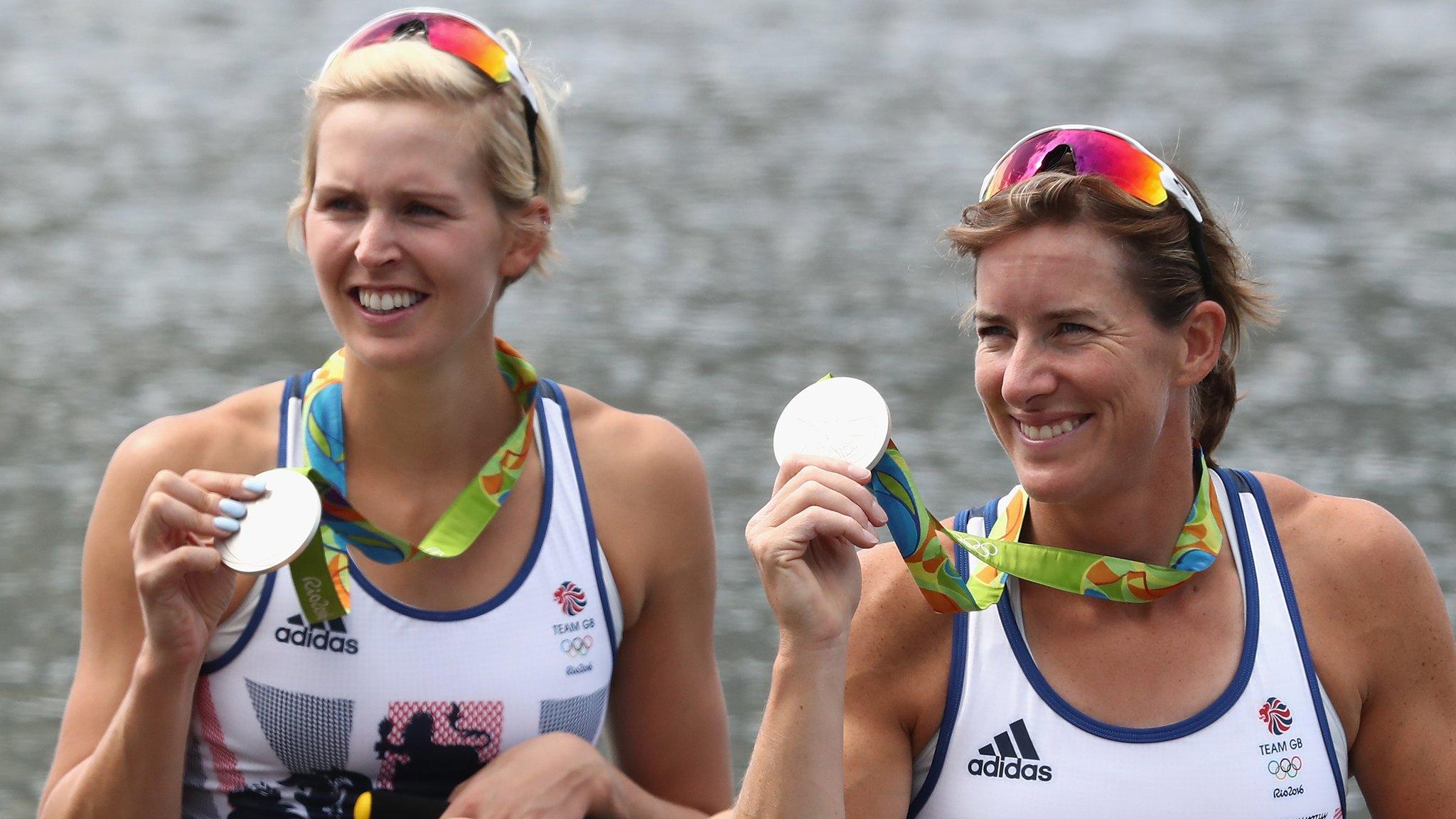
- Published2 August 2016
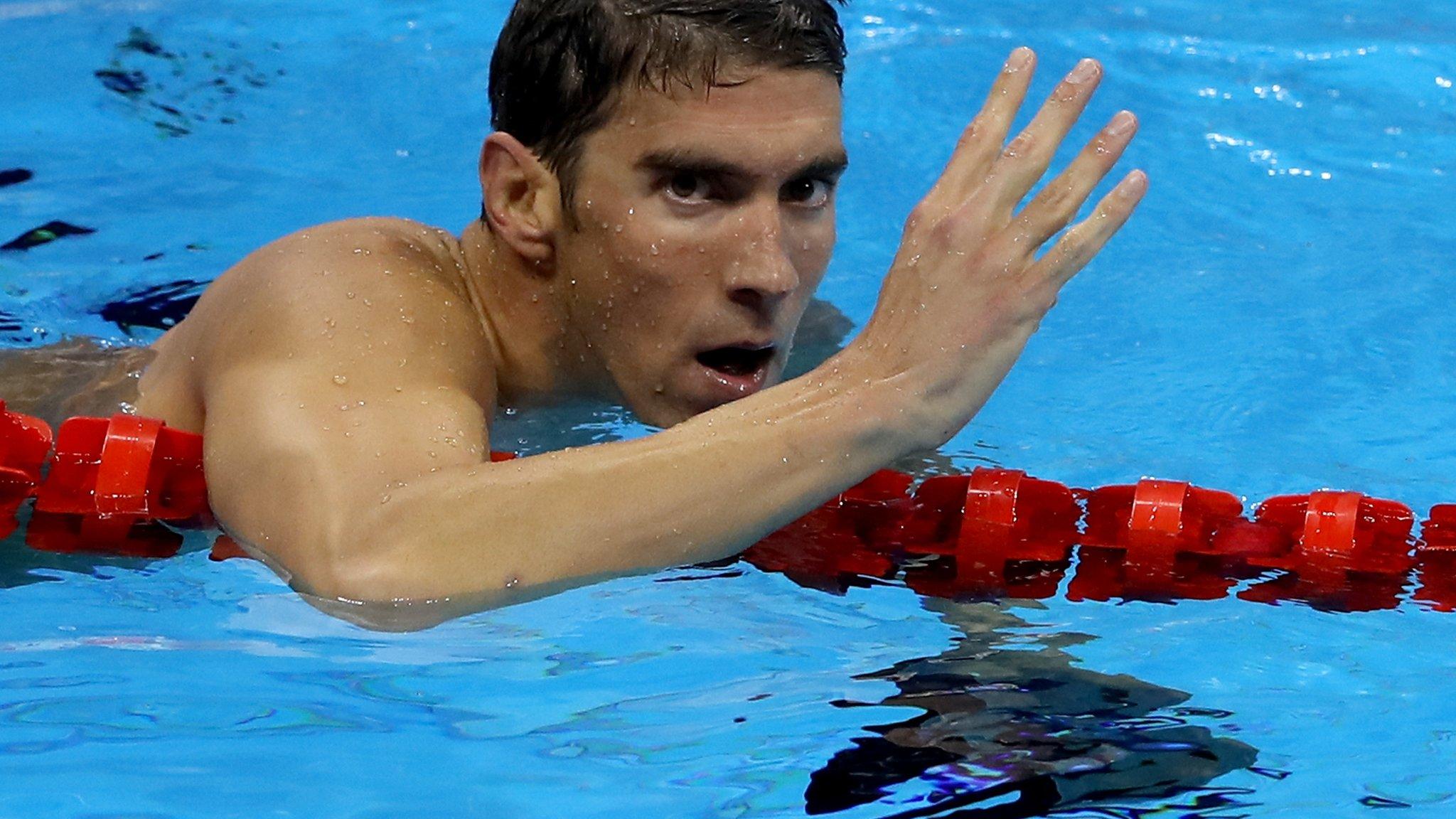
- Published11 August 2016
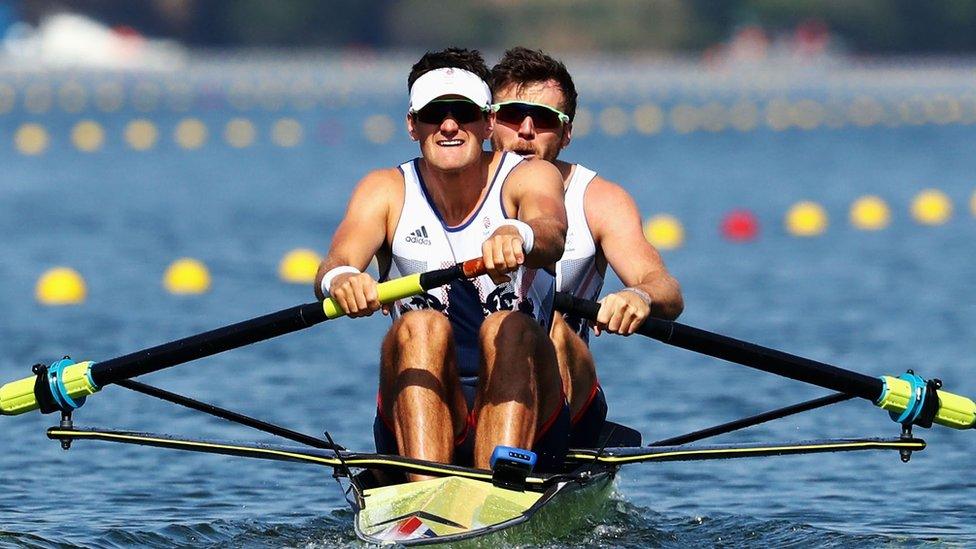
- Published11 August 2016
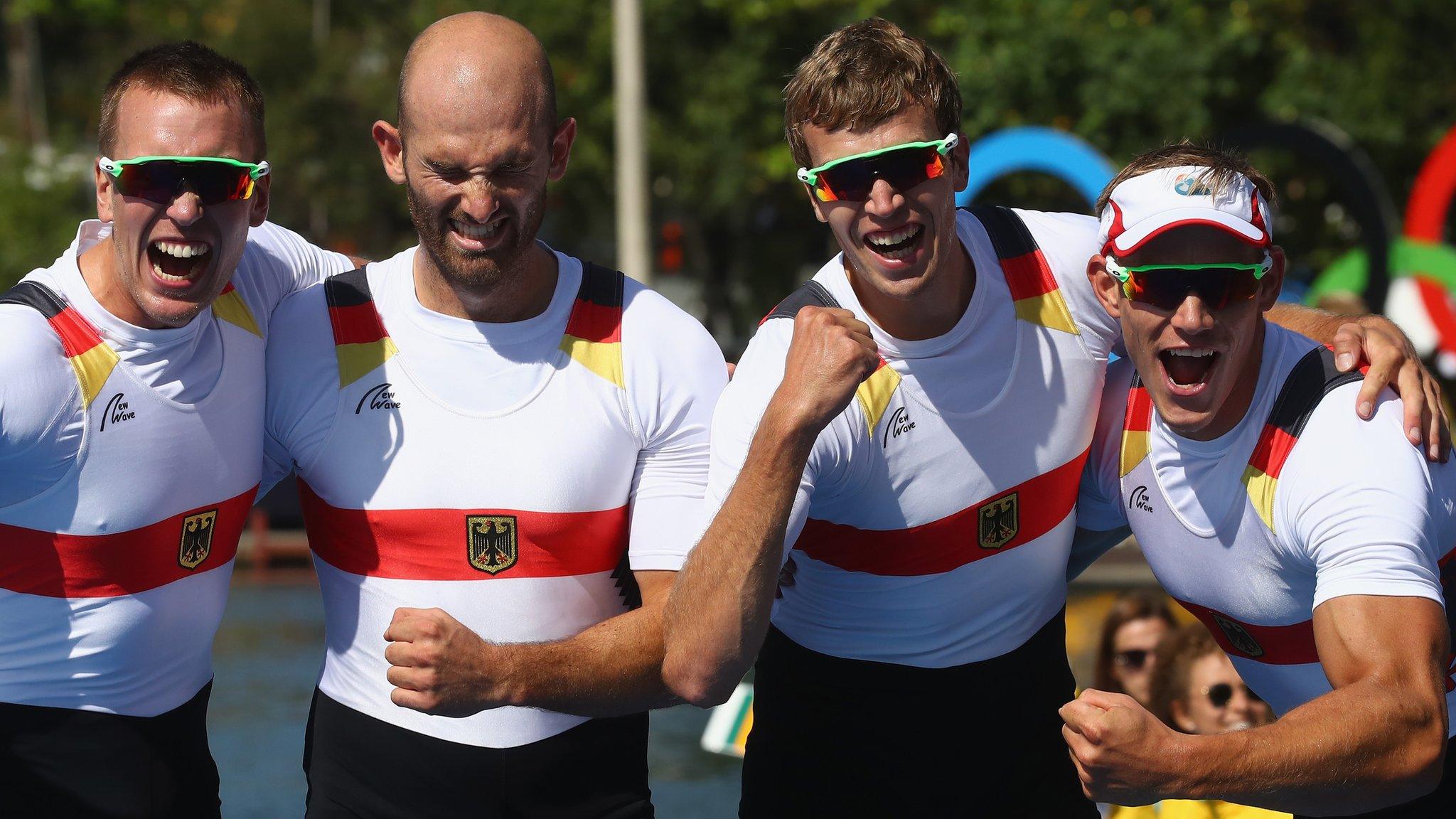
- Published18 August 2016

- Published3 August 2016

- Published19 July 2016
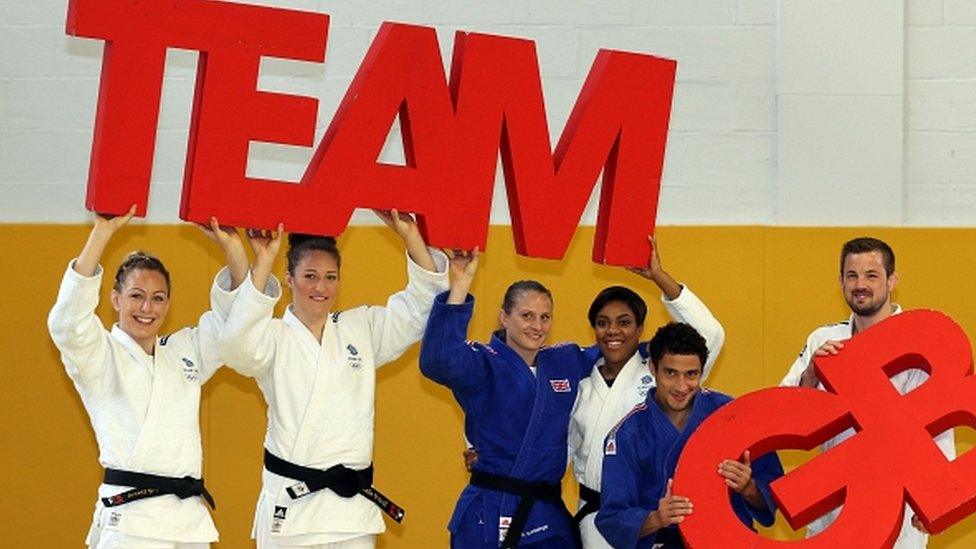
- Published3 August 2016
